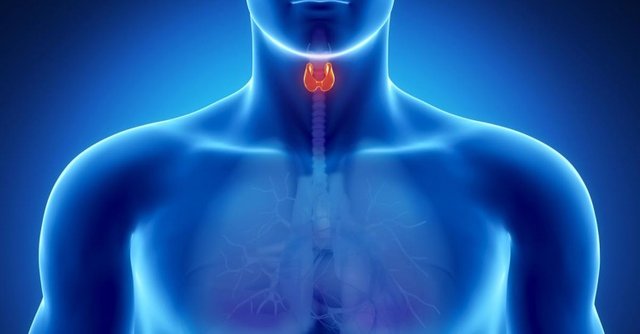
The adrenals glands secrete hormones – such as cortisol, epinephrine and norepinephrine – that regulate the stress response.
Most people are familiar with mental and emotional stress but stress can also come from inside the body. Blood sugar swings, gut dysfunction, food intolerances (especially gluten), chronic infections, environmental toxins, autoimmune problems and inflammation all put stress on the adrenal glands and cause them to produce more stress hormones. This chronic stress can cause a weakening of the adrenal glands and cause them to ‘fatigue’ or ‘burnout’. Adrenal imbalance can cause hypothyroidism which can often be corrected by addressing the weak adrenal glands.
Chronic adrenal stress increases the production of the hormone cortisol which reduces conversion of T4 to T3, therefore leading to hypothyroidism. Chronically raised cortisol levels also decrease the liver’s ability to clear excess estrogens from the blood. Excess estrogen increases levels of Thyroid Hormone Binding Globulin which inactivates the free thyroid hormones in the blood.
The Gut/Thyroid Connection
The gut and the thyroid gland have an interesting relationship because poor gut health can suppress thyroid function and similarly low thyroid function can lead to an unhealthy gut. The most important function of the gut is to prevent foreign substances from entering the body. The contents of the gut are in fact OUTSIDE the body and anything that is eaten and not digested should pass right out the other end. Another important function of the gut is to house 70% of the body’s immune tissue.
If the intestinal barrier becomes inflamed and permeable (i.e. “leaky gut syndrome”), large protein molecules escape into the bloodstream. Since these proteins don’t belong outside of the gut, the body mounts an immune response and attacks them. Studies show that these attacks play a role in the development of autoimmune diseases like Hashimoto’s.
The millions of gut bacteria assist in converting inactive T4 into the active form of thyroid hormone, T3. About 20 percent of T4 is converted to T3 in the GI tract with the help of these bacteria. Intestinal dysbiosis, an imbalance between pathogenic and beneficial bacteria in the gut, significantly reduces the conversion of T4 to T3.
Constipation impairs our ability to detoxify hormones and causes elevations in estrogen, which in turn raises thyroid-binding globulin (TBG) levels and decreases the amount of free thyroid hormones available to the body. On the other hand, low thyroid function slows transit time, causing constipation and increasing inflammation, infections and malabsorption.
It’s important to address the gut when treating hypothyroidism, however it is equally important to rectify the thyroid hormones when treating gut dysfunction because thyroid hormones strongly influence the tight junctions in the stomach and small intestine which means they help to prevent ‘leaky gut syndrome’ and protect the intestinal lining. Likewise, thyroid stimulating hormone (TSH) influences the development of the immunity in the gut and T4 helps to prevent inflammation in the gut.